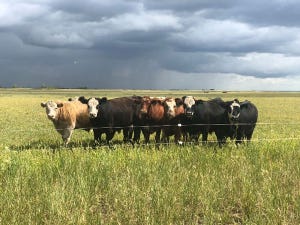October 20, 2016

I get goose bumps when I hear our national anthem. I get teary eyed when I think of the sacrifice our soldiers have paid for our liberty, and I truly believe in American exceptionalism. The world and the global economy would be far worse without the good ol’ USA, in my estimation.
With that said, there is the reality of recent years. The world is seemingly coming undone. The average American voter knows it. That is why Donald Trump and Bernie Sanders captured America’s attention. We know something must change. Ironically, voters got so caught up in sending that message that they somehow ended up with the likely winner being the epitome and living embodiment of the status quo and all the reasons that things have gone so wrong.
Here are just a few reasons many Americans are looking at the future with a jaundiced eye: Government policies are failing us, and yet we are simply doubling down on them. The global economy is stagnant when it should be growing. In the last decade, Europe and North America have seen no growth in purchasing power, except for the ultra-rich. Income inequality is real, as is the widening gap between the rich and the middle class.
The reasons are simple—excessive taxation and regulation, poor monetary policy and deficit spending. Excessive taxation and regulation not only kill the engines of our economy, but they increase the wealth gap because it is only the wealthy and corporations that can prosper in these environments.
The solution is not government manipulation of interest rates and easing money supplies, which distort markets and benefits the wealthy at the expense of others. Governments, corporations and the stock market are flooded with cheap money, while smaller businesses and entrepreneurs suffer from a lack of access to capital.
Rather, the solution is to adopt pro-growth strategies as our economic philosophy. Pro-growth strategies are not complicated or difficult to implement, but they inevitably lead to rewarding nimble revolutionaries, not the ultra-rich and corporations. Pro-growth strategies level playing fields and encourage global trade; again, not something the elite want.
Factor in that those pro-growth strategies also strengthen the individual, reduce the power of government and force governments to adopt a semblance of fiscal responsibility, and it is not hard to understand why very few countries in the world, or at least very few governments in the world, are embracing pro-growth policies.
The other major economic hurdle we seem to face is isolationism, whether it be destroying the global trading system or retreating from our responsibilities around the world. History is pretty clear here, as well: Fail to counter aggression and we will be faced with global conflicts that cost far more than what we spend on defense and proactive strategies. When you say the Middle East, the South China Sea, the former Soviet Union, Korea and the list goes on, you see aggression growing as the U.S. retreats and shirks its responsibilities.
Quite simply, it is government policies that are creating a world that is simultaneously more dangerous and less prosperous. The American electorate and others like the British are right in understanding that the status quo is not only untenable but ultimately disastrous.
This time around, it appeared American voters had enough and were going to fix it. This was supposed to be the election of change. Instead, it looks like the election that precludes change not only in the near term, but makes reform all the more difficult in the long run.
The beef industry is doing the same thing. Instead of growing demand, increasing the pie and becoming more competitive, we are focusing on cost-cutting and lowering prices.
The well for American voters is running dry; politicians can’t keep taxing us more and re-allocating resources to ensure elections. Likewise, the beef industry can’t just keep cutting costs in order to maintain margins, while forcing high-cost producers out of the business. If we are in need of a history lesson, all we have to do is look toward Greece or the lamb industry.
Isolationism, protectionism and currency manipulation, coupled with a doubling down on taxation, regulation and counter-intuitive monetary policy, is not what we bargained for when asked for change.
From an industry standpoint, more of the same or returning to an industry structure that existed 50 years ago are not the solutions we want. Leadership has failed us, but as participants in the system we bear responsibility as well. Demagogues only flourish when the masses follow.
About the Author(s)
You May Also Like



